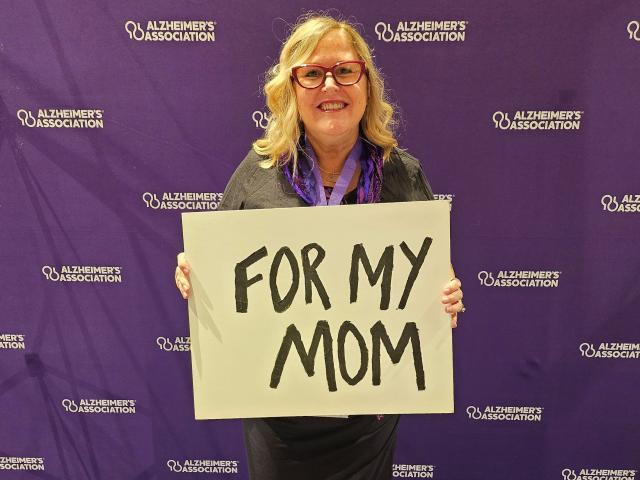Secretary Kennedy continues to spread harmful myths about Alzheimer’s research
Washington, D.C., May 20, 2025 — During today’s Senate budget hearing with Department of Health and Human Services (HHS) Secretary Kennedy, committee members from both sides of the aisle reaffirmed their strong support for continued investment in Alzheimer’s and dementia research. Despite Sec. Kennedy committing to work with Congress to address the dementia public health crisis, he again perpetuated inaccurate and dangerous fabrications about the state of Alzheimer’s research. The Alzheimer’s Association is imploring him to stop.
During his testimony, Sec. Kennedy continued to paint a false narrative about the National Institutes of Health (NIH) saying, “NIH really went off the rails on Alzheimer’s research 20 years ago. One of the favorite researchers, the part of the old boys club at NIH, developed a hypothesis that Alzheimer’s was, the cause, was caused by amyloid plaque buildups. After that, NIH suppressed any science — refused to fund any science.”
“Dementia scientists have been conducting wide-ranging research to discover new ways to prevent and treat Alzheimer’s and other dementia,” said Maria C. Carrillo, Ph.D., Alzheimer’s Association chief science officer and medical affairs lead. “On behalf of the over 7 million Americans living with Alzheimer’s and the thousands of evidence-based researchers who have dedicated their lives to eradicating this disease, I implore Sec. Kennedy to stop repeating harmful myths about Alzheimer’s research and instead start working with us and our bipartisan congressional champions to accelerate scientific progress in the fight against this devastating disease.”
First, thanks to bipartisan support for Alzheimer’s and dementia research funding, scientists at the NIH have been able to explore a wide range of research. Indeed, over the most recent 10 years available (2014-2023), less than 14% of new NIH Alzheimer’s projects focused on amyloid beta as the therapeutic target. Second, the buildup of beta-amyloid has long been recognized and confirmed by many research studies as a hallmark of Alzheimer’s disease. In addition to beta-amyloid accumulation, researchers worldwide are investigating a variety of other possible triggers and potential interventions for the destructive series of events over many years that eventually kill brain cells.
Further demonstrating the progress the field has made, just last week, the Food and Drug Administration (FDA) cleared the first blood test to aid in diagnosis of Alzheimer’s disease. The test detects amyloid plaques, through a blood draw, making it less invasive than other more commonly used diagnostic tools.
Throughout today’s hearing, committee members from both sides of the aisle recognized the passionate Alzheimer’s advocates who provided a purple presence in the hearing room and reaffirmed their commitment to investing in Alzheimer’s and dementia research. Importantly, there was also bipartisan concern about the harm that would come from proposed research funding and staff cuts proposed or already underway by Sec. Kennedy and HHS.
Kicking off the hearing, Chair Shelley Moore Capito (R-W.Va.) shared her personal connection to the disease and her longstanding commitment to Alzheimer’s research. “These investments have allowed NIH to fund research into a wide variety of potential causes of the disease and build evidence for prevention based on a healthy lifestyle. NIH-funded research of the amyloid protein led to the development of the FDA-approved Alzheimer's drugs in [2023 and 2024] to slow progression of the disease. All this research is extremely important, and I look forward to working with you to continue,” said Sen. Capito.
Long-time Alzheimer’s champion Sen. Susan Collins (R-Maine) raised concerns about the impact of NIH funding cuts on implementation of critical dementia programs like BOLD, which was unanimously reauthorized in 2024.
“How and when does HHS plan to issue this notice of funding opportunity so that we can continue what has been a very effective approach to the Healthy Brain Initiative and Centers of Excellence?” asked Sen. Collins. “It helps caregivers, it encourages early diagnosis. It really has been an important program, taking the kind of public health approach that you've generally supported.”
The Alzheimer’s Association remains available to work with Sec. Kennedy, HHS and bipartisan congressional champions on BOLD and other public health initiatives that are focused on implementing effective Alzheimer’s interventions and improving brain health in all communities.
“Identifying and implementing methods of prevention could save millions of lives and greatly reduce health care costs for families, Medicare and Medicaid,” said Robert Egge, chief public policy officer of the Alzheimer’s Association and AIM president. “The Alzheimer’s Association looks forward to continuing to work with our bipartisan congressional champions to uphold the nation’s commitment to addressing Alzheimer’s so we can one day achieve our vision of a world without Alzheimer’s and all other dementia.”
Read the Association and the Alzheimer’s Impact Movement’s (AIM) past statements on the importance of preserving our nation’s investment in the fight against Alzheimer’s and other dementia:
- Moving Our Mission Forward (Feb. 24, 2025)
- Bipartisan Support for Alzheimer’s and Dementia Research During Senate HELP Committee (March 5, 2025)
- Alzheimer’s Association Sounding the Alarm Over the Threat of Elimination of Alzheimer’s Programs at HHS, CDC (April 1, 2025)
- Strong Bipartisan Support for Continued Investment in Alzheimer’s Research on Full Display During Senate Appropriations Hearing (April 30, 2025)
- Alzheimer’s Association Statement on Trump Administration Proposed FY26 Budget (May 2, 2025)
- Alzheimer’s Association and Alzheimer’s Impact Movement Statement on Proposed Changes to Medicaid (May 12, 2025)
- Contrary to Clear, Verifiable Facts, Secretary Kennedy Continues to Repeat Harmful Myths About Alzheimer’s and Dementia Research (May 15, 2025)
